All
That Jazz
1979
Director: Bob Fosse
Starring: Roy Scheider, Jessica Lange,
Leland Palmer, Ann Reinking
I
love musicals. I really do. They are so wonderful, such fantastic
entertainment. I love the classic MGM
musicals (but I’m not a fan of Rodgers and Hammerstein – more on that later), I
love the early black and white musicals, I think the recent dabble into
musicals again is great, but when you talk about Bob Fosse, then we’re talking
an entirely different level of musicals altogether. When I was in college, I took a one-off
theater studies course, and in it, we spent a bit of time discussing
Fosse. Since then, I’ve been utterly
fascinated by him. Having this set up
for this film, this autobiography of Fosse, his incredibly cruel portrayal of
himself, with plenty of that sublime choreography thrown in for good measure,
and, um, yeah, I’m a fan.
The
story follows Joe Gideon (Scheider), a hard-working theater
director/choreographer/ filmmaker, as he gets his new Broadway show started in
rehearsals during the day and edits his latest film at night. His ex-wife Audrey (Palmer) loves and
respects him but can’t stand him, his young daughter Michelle worships him, and
his live-in girlfriend Kate (Reinking) adores him despite the fact that he
continually cheats on her. Surrounded as
he is by people who support him, Gideon cannot help but drive his health into
the ground, not getting enough sleep, hooked on painkillers, and continually
smoking and drinking. He carries on a
fantasy dialogue with Angelique (Lange), the Angel of Death (or Life, based on
your interpretation), which intensifies when Joe is hospitalized.
I
agree wholeheartedly that there are two distinct reactions to this film. You either find it a frighteningly honest
portrayal of a man completely aware of his own mortality, or a wildly
narcissistic and self-indulgent ego trip by a man simply glorifying his own
life. I fall squarely in the former
category, but even within my family, opinion is split; my sister definitely
thinks it’s the latter, having been terrifically unimpressed by it. For those who say that this is simply Fosse’s
self-indulgence reaching its zenith, I just don’t think you’re getting at the
heart of the film. I don’t agree that
this is Fosse thinking his life is SO fascinating that it warrants a film. I think this is him exorcising his demons;
it’s almost a living will. Fosse had his
first heart attack in 1974, which followed on the heels of his winning an
Oscar, an Emmy, and a Tony in the same year (the only person to do so). There’s no doubt that Fosse had tremendous
professional success, but in this film, he doesn’t focus his story on that in
the least. Instead, he focuses on his
personal failures. To me, I read this as
almost an apology to those he is closest to in his life. Through the conversations with Angelique,
Gideon comments several times about “not knowing where the bullshit ends,”
meaning that he cannot help but lie to those in his life. And yet he loves them. He loves Audrey and Kate and Michelle. At the end especially, there are some lovely
lines to Audrey and Kate that are clearly Fosse himself speaking to those he
loves. He’s sorry for being such a
dick. He really is. He really loves you all. But he also knows that he’s an asshole. So this is the best way for him to apologize
and let you know just how much you meant to him. That’s how I read the film.
What
further convinces me that this is not simply Fosse indulging himself is how he
portrays the business angle of show biz.
The backers and producers of Gideon’s latest show clearly do not love
Gideon. They do not worship his
talent. They are not working with him
because he is a genius. They are working
with him because they know that his show will make money. This is driven home in a scene late in the
film when the board meets while Gideon undergoes open heart surgery. They coldly rifle off budget numbers and
conclude that if Gideon dies, they’ll make money despite the fact that the show
never even opened. No one could give a
flying crap what actually happens to Gideon, and Fosse knows this. He knows that he is not valued because of any
“genius” on his part, but simply because of his capacity to make money. He’s not fooling himself.
Given
that Fosse died of a heart attack in 1987, All That Jazz is a frighteningly
prophetic film. The second half of the
film, where Gideon is hospitalized, is a musical theater interpretation of what
dying must feel like. It’s one thing to
have Fosse write a script where his alter-ego apologizes for his many faults,
and yet keeps on committing them anyway, but it’s quite something else to know
that those very faults brought him down, and not that long after this film was
made. Flat out, I see this as Fosse
predicting his own death. Fosse knows
that he is ruining his own life, so what does he do about it? He makes a film about it, about his
all-consuming weakness when it comes to making real changes to his life.
Audrey
was a stand-in for Broadway legend Gwen Verdon, Fosse’s ex-wife with whom he
fathered a daughter, and Kate was a stand-in for Broadway legend Ann Reinking,
Fosse’s live-in girlfriend and protégé.
The fact that Reinking essentially played herself (apparently, though,
Fosse made her audition just like everyone else) is what makes this film pass
over from semi-autobiographical to completely autobiographical. Furthermore, given that Reinking and Verdon
both have become guardians of Fosse’s inimitable style of choreography, to get
to see Reinking dance his steps, as directed by him, it’s a joy. If you watch Reinking in the dance numbers,
when she is dancing the same moves as another dancer, you can tell that her
understanding of the dance is far greater than anyone else. This is not just “another” dancer. She completely inhabits not the moves, but
the philosophy behind the moves. It’s
utterly captivating. My eye is drawn to
her in every dance. I want more.
Speaking
of the dancing, I have to go into my Fosse spiel here. When it comes to choreography, holy crapola,
but Fosse was something else. I’m by no
means an expert in dance, but I know a little about it. I danced ballet as a young girl (like many
young girls) and revisited it for a year in college. That was the same time that I started
learning about Fosse. Ballet is all
about lovely gentle curves. I remember
in my ballet classes in college, the instructor would talk about the line we
would make from our neck to the tips of our fingers. Everything is connected, and the hands and
fingers are merely extensions of the arms, finishing the moves the arms
make. Fosse couldn’t be more
different. Fosse’s choreography is
typified by angles. There’s a lot of
pelvis, a lot of ankle, and a lot of wrist in Fosse. He was fascinated by the human body creating
angles that weren’t natural; the spine curved under, fingers spread as wide as
possible (he loved jazz hands), feet in peculiar positions, short hops. I don’t have a better way of saying this: I
love Fosse’s choreography. I just can’t
turn away from it. It’s hypnotic to
me. In All That Jazz, the best
“Fosse” numbers are easily the “Take Off With Us/Airotica” routine and the
songs performed by Kate, Audrey, and Michelle in the death dream sequence at
the end. All I can say about these
exquisite pieces of art is this: watch them.
Watch them. They are glorious.
Oh
man, and I haven’t yet talked about the truly filmic aspects of this
movie. Scheider, himself not a dancer or
singer, is awesome here. He had to
campaign for the part by spending one on one time with Fosse, but Fosse
eventually saw that Scheider would be capable of pulling it off. The part of the Angel of Death is wonderful
and vital, and Lange, in only her second film, is simple yet sublime as the
sweetly smiling seductress, happily encouraging Gideon as he indulges in his excesses
as she knows it will hasten him to her side.
Fosse shoots the film absolutely brilliantly, creating scene after scene
filled with fantastic visuals.
Everything gets shockingly white and bright as we progress towards the
inevitable conclusion. The film is full
of bright white lights, especially in the second half, representing the
uncomfortable fluorescent lights of hospitals, the klieg lights of the theater
and film stage, and the symbolic light of Death, whisking away another soul
from the world. For those not as
interested in the singing and dancing, the film gives you plenty in the way of
fascinating visuals for you to feast upon.
I
have to say I’m pleased that the response to this film is generally positive
amongst my fellow film bloggers, given that it contains singing and
dancing. I like that others seem to
consider this “the musical for those who don’t like musicals.” Fosse is so fascinating a character, and his
choreography, utterly sublime. I am enthralled
by him, and I cannot believe how anyone would have the courage to commit this
particular self-portrait to celluloid for all eternity. He turns the camera eye inward with such a
cold eye, pulling out his deepest flaws and insecurities and throwing them on
the screen for all to see. Meanwhile,
it’s entertaining as all get out. This
is a damn good film.
Bottom
line, this movie excites me in a way few films are capable of. I can’t really think of a better compliment.
Arbitrary
Rating: 9.5/10 Oh, and I love the use of
the Vivaldi Concerto Rustica too.
Because I didn’t have enough good things to say already, right?
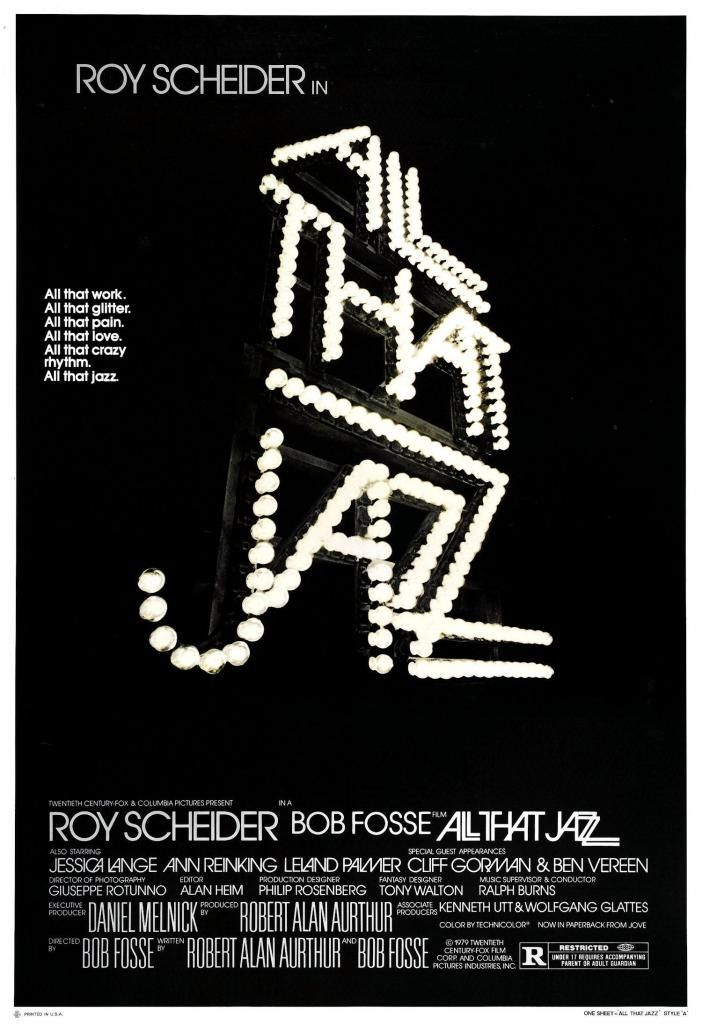
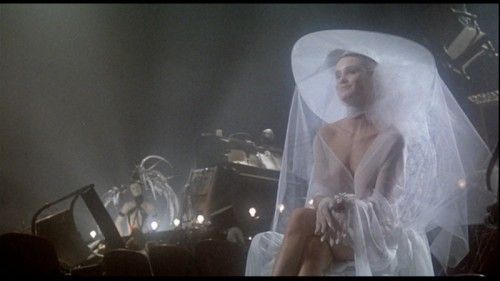
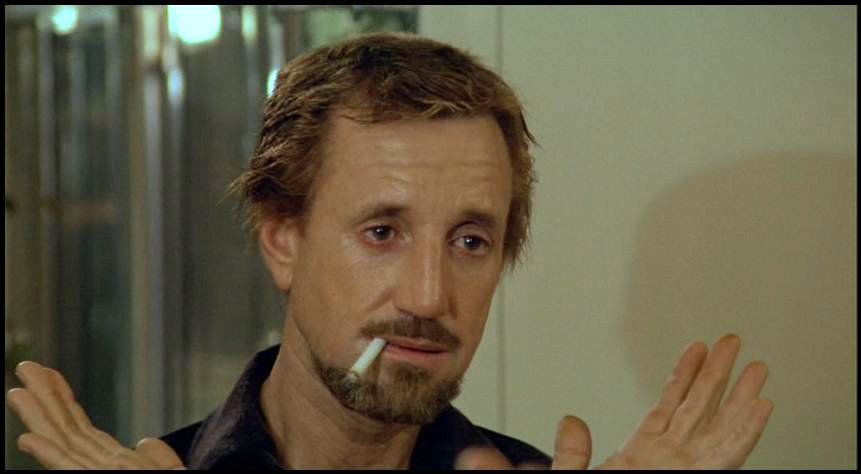
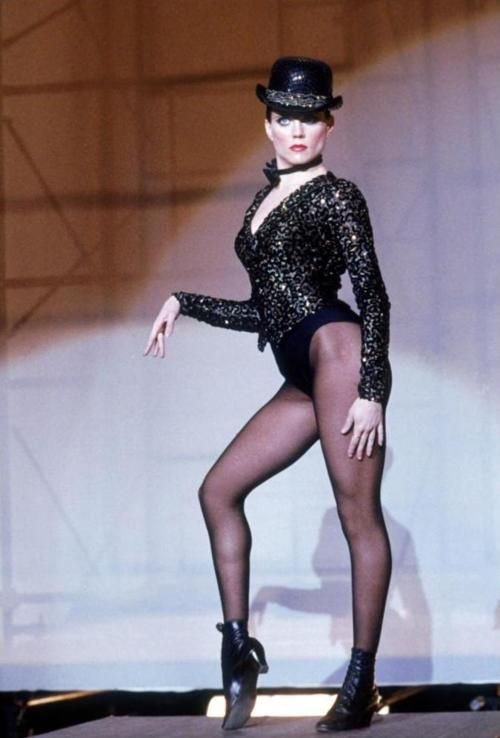
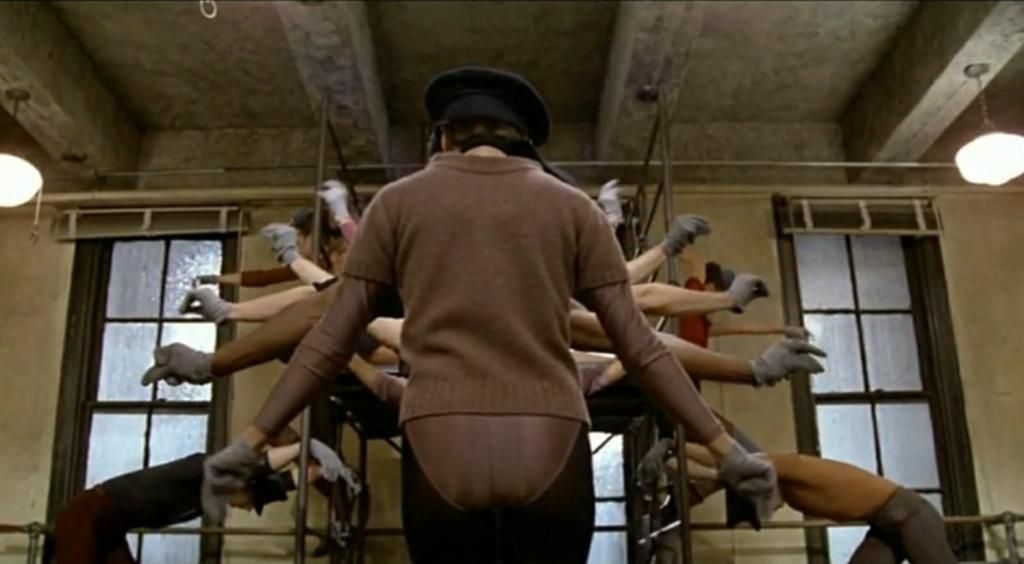
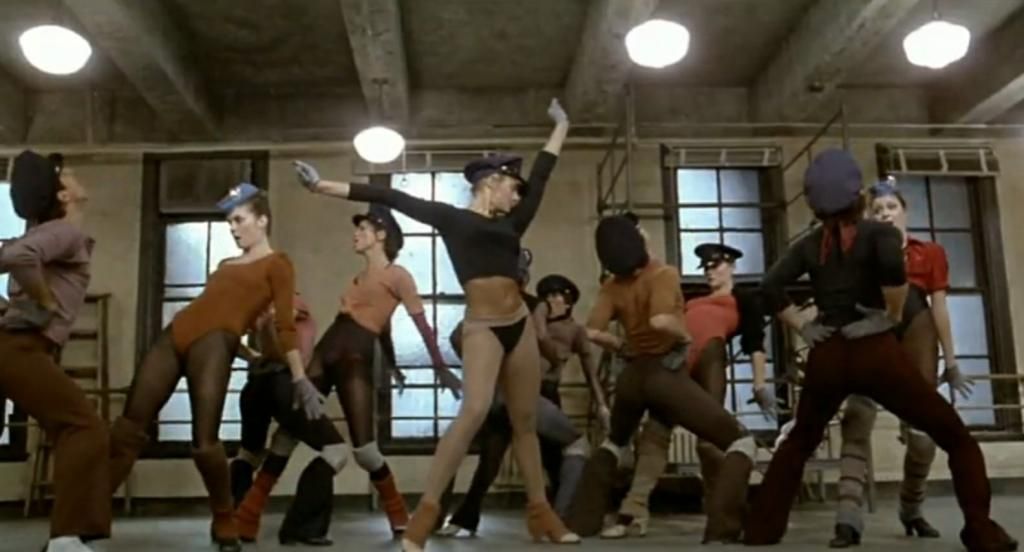
I'm not sure what't up, but when I click on "Read more" nothing happens. It doesn't show the rest of the article. I tried various views under the leftmost dropdown, but none let me get around it.
ReplyDeleteThanks for letting me know. I think I fixed it. I'm still getting used to this new layout. I really like how it looks, but I'm not so hot on some of the other aspects.
ReplyDeleteI can read the whole thing now. Thanks.
ReplyDeleteI actually see this film as all the things you mentioned. It is both an unflinching look at Fosse and it is very self-indulgent. It is the latter because it assumes that people will want to know about all these warts of his, not just his public persona.
I remember being surprised when I checked the cast afterwards and found that Erzsebet Foldi - who played his daughter - never acted in another movie. I thought she did a good job in her role. According to IMDB, she found religion and realized the evils of movie making so she never acted again.
Guess what? I think the "double messaging" I mentioned only happens when it re-displays the page after leaving a comment. When I left my first message last night, it appeared to double. When I came back a few minutes ago I saw the single message and figured you have deleted the duplicate or fixed the problem. When I left the comment above, it doubled not only that, but my original comment, too. I tried an experiment - I left this page and came back and voila, there were only single messages here. It looks like it's only the re-display that has the issue.
DeleteI had looked that up about Foldi as well. Too bad, really - she was very good, especially alongside such other stars in such a film!
DeleteInteresting that you see both sides of it.
I'll look into the weird comment thing. Serves me right for trying to change the look of my blog.
"Serves me right for trying to change the look of my blog."
DeleteYou should be able to use any of the templates for how it looks without affecting how the basic functions work. It should be user-friendly enough that you shouldn't have to worry about that.
I've thought about going to the effort of figuring out how to get my Labels into dropdowns at the top, but I've never gotten around to it.
Ready for this? I love this film. It's one of my favorite musicals and one of the best films from its decade. Surprised, right?
ReplyDeleteSee, my main problem with musicals is that the singing and choreography break with verisimilitude. If it's supposed to be a real world, when did everyone practice their dance steps? This movie solves that problem by making the dance numbers a legitimate part of the story or making them a part of a fever/death dream, so they all work for me. And that leaves me free to concentrate on everything else, and everything else here is superb.
yay! That makes me happy. I love the opening Broadway audition sequence - as the commentary says, it's "A Chorus Line" in 8 minutes.
Deletecheap uggs
ReplyDeleteoakley outlet online
michael kors handbags
longchamp outlet
kobe basketball shoes
skechers shoes for men
yeezy sneakers
ugg boots uk
cheap oakley sunglasses
jordan shoes
Awesome memories.
ReplyDeletehttp://sickbits.net/